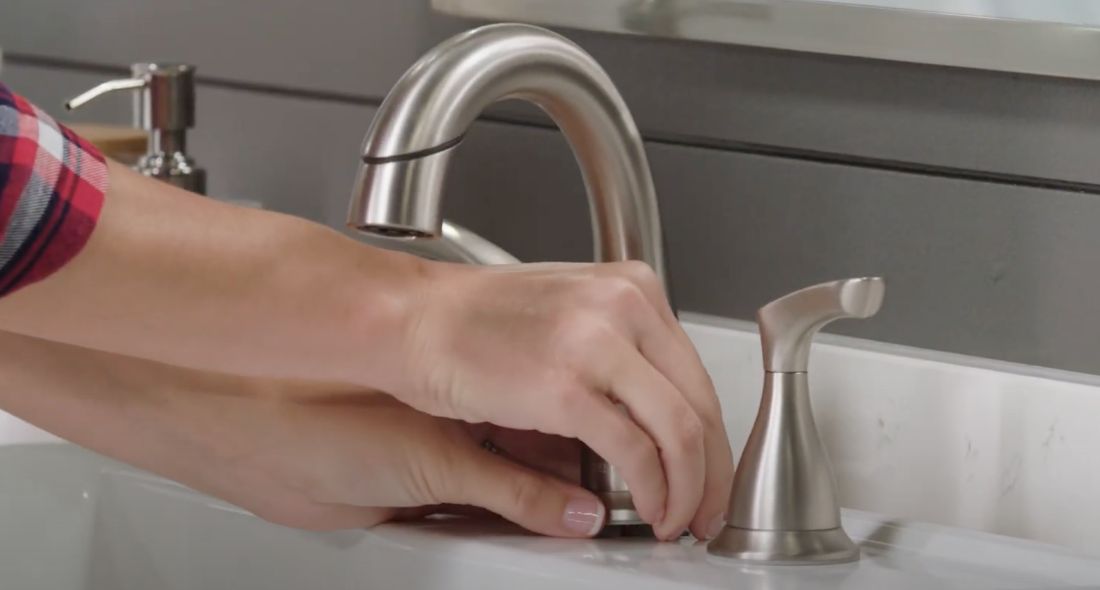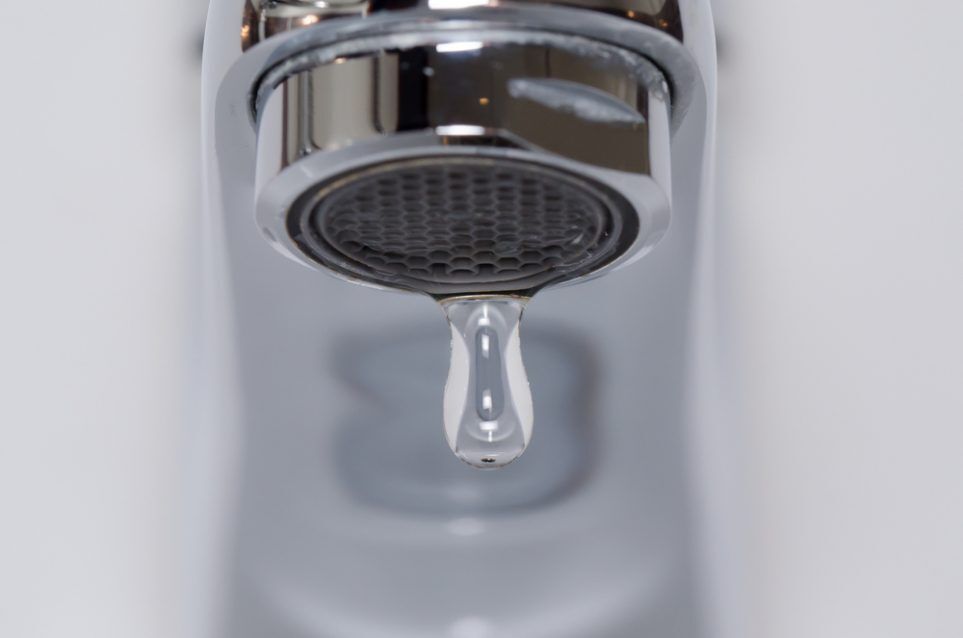When It's Needed to Fix a Leaking Faucet
When It's Needed to Fix a Leaking Faucet
Blog Article
Everybody seems to have their unique notions with regards to 4 Common Reasons for a Leaky Faucet.

Trickling faucets may look like a small aggravation, but their impact exceeds simply the inconvenience of the audio. From drainage to incurring unnecessary economic prices and health and wellness dangers, ignoring a leaking faucet can result in different repercussions. In this short article, we'll look into why it's essential to address this typical home concern quickly and effectively.
Wastage of Water
Environmental Effect
Dripping faucets contribute significantly to water waste. According to the Environmental Protection Agency (EPA), a solitary faucet trickling at one drip per secondly can throw away greater than 3,000 gallons of water annually. This not just pressures water sources yet additionally impacts communities and wildlife depending on them.
Step-by-Step Overview to Dealing With a Dripping Tap
Devices Called for
Prior to attempting to deal with a trickling tap, collect the essential devices, consisting of an adjustable wrench, screwdrivers, replacement components (such as washers or cartridges), and plumber's tape.
Common Faucet Issues and Their Solutions
Recognize the type of tap and the details concern causing the drip. Usual issues consist of damaged washers, corroded valve seats, or faulty O-rings. Describe manufacturer instructions or on the internet tutorials for step-by-step support on fixings.
Financial Prices
Boosted Water Expenses
Past the environmental effect, dripping taps can inflate water bills substantially. The built up wastage with time equates into higher utility costs, which can have been prevented with prompt fixings.
Potential Property Damages
Moreover, prolonged leaking can bring about damage to components and surfaces surrounding the faucet. Water buildup can cause staining, deterioration, and also architectural issues if left unattended, resulting in added repair service prices.
Health Concerns
Mold and Mold Development
The constant presence of wetness from a leaking tap creates an ideal environment for mold and mildew and mold growth. These fungis not just endanger indoor air high quality however likewise present health and wellness threats, particularly for people with breathing problems or allergies.
Waterborne Diseases
Stagnant water in leaking taps can end up being a breeding ground for bacteria and other virus, raising the danger of waterborne illness. Impurities such as Legionella microorganisms prosper in stationary water, potentially resulting in major health problems when consumed or breathed in.
DIY vs. Professional Repair service
Benefits and drawbacks of Do It Yourself Fixing
While some might attempt to repair a leaking faucet themselves, do it yourself repairs include their very own collection of obstacles. Without correct understanding and tools, DIY efforts can intensify the problem or lead to incomplete repair work, prolonging the issue.
Benefits of Working With a Professional Plumber
Employing a specialist plumber makes certain that the underlying cause of the leaking tap is resolved effectively. Plumbing technicians possess the know-how and tools to detect and fix faucet issues efficiently, saving time and minimizing the risk of more damage.
Environmental Responsibility
Private Payment to Preservation
Taking duty for fixing leaking faucets lines up with more comprehensive efforts towards water preservation and ecological sustainability. Every individual's activities collectively make a substantial influence on protecting valuable resources.
Lasting Living Practices
By prioritizing punctual fixings and taking on water-saving habits, individuals contribute to sustainable living methods that profit both existing and future generations.
Preventive Measures
Routine Upkeep Tips
To stop leaking faucets, perform regular upkeep such as cleaning up aerators, checking for leaks, and changing damaged components without delay. Additionally, consider installing water-saving gadgets or updating to much more effective fixtures.
Value of Prompt Repairs
Addressing dripping taps as soon as they're discovered protects against more water waste and potential damage, eventually conserving both water and cash in the future.
Impact on Home Value
Perception of Well-Maintained Building
Preserving a residential property in good condition, consisting of resolving upkeep problems like trickling faucets, enhances its viewed value and worth among possible purchasers or tenants.
Impact on Resale Value
Features with well-maintained plumbing fixtures, consisting of taps, command higher resale values in the realty market. Addressing dripping faucets can add to a favorable impression during residential or commercial property inspections and settlements.
Verdict
Attending to a dripping faucet goes beyond simple convenience; it's a crucial step towards preserving water, lowering financial prices, and protecting wellness and property. Whether through do it yourself repairs or specialist support, taking action to fix trickling taps is a tiny yet impactful way to advertise accountable stewardship of sources and contribute to a healthier, a lot more sustainable future.
How to Fix a Leaky Faucet: Step-by-Step Repair Guide
A leaky faucet may seem like a simple annoyance, but if it's not fixed promptly, that leak could cost hundreds to potentially thousands. From water damage to mold, mildew, and high water bills, even a tiny leak can be catastrophic if left unattended. Damage like this can even affect the overall value of your home, so it's important to take the right approach for leaky faucet repair. You may need the help of a plumber in some cases, but we've got a few tips you can try on how to fix a leaky faucet before calling the pros.
Four Faucet Types
When you're learning how to fix a leaky faucet, the first step is knowing what kind of faucet you're working with! There are four common types.
Cartridge Faucets
Cartridge faucets come in one- or two-handled varieties. In one-handled cartridge faucets, hot and cold water combines in a single cartridge. In the two-handled versions, hot and cold water are controlled separately and mixed in the faucet.
Ball Faucets
Ball faucets have a single lever you push up and down to adjust the pressure and rotate to change the temperature. A slotted metal ball controls the amount of water allowed into the spout.
Compression Washer Faucets
They're the oldest type of faucet, but they're still used in many homes — especially older ones. Compression faucets have two separate handles that, when turned, raise or lower the washer that seals a water valve. This valve stops water from flowing through the faucet when it is turned off.
Disc Faucets
Disc faucets rarely need to be repaired due to their maintenance-free design. The water flow is controlled by two discs — the upper one raises and lowers against a fixed lower disc, creating a watertight seal. If your disc faucet starts leaking, you may need to replace the seals or clean residue buildup from the inlets.
Fixing a Leaky Faucet
Step 1: Turn Off the Water
Whether you're learning how to fix a leaky bathtub faucet or how to fix a leaky kitchen faucet, always turn off the water supply to your working area when you're fixing a leak. The last thing you want is a flood added to your list of things to fix.
Look for the shutoff valves below your sink or around the tub and turn them clockwise to stop the water flow. If your faucet doesn't have shutoff valves, you may need to turn off the water for the whole house. Check to make sure it's off by turning the faucet on. If nothing comes out, you're ready to start the repair.
Step 2: Take Apart the Faucet
How you disassemble your faucet depends on the type of fixture you have. You can use a flathead screwdriver to remove the caps on top of the handle or handles for cartridge and compression faucets. Inside, you should see handle screws. Unscrew these with a screwdriver to remove the handle.
Disc- and ball-style faucets will typically have an inlet screw near the handle, and removing that will reveal the interior of the faucet.
Detach the Valve Stem
For cartridge- and compression-style faucets, you'll see the inner valve stem or cartridge once you remove the faucet handles. If you have a compression faucet, unscrew the brass valve stem. If you have a cartridge faucet, pull out the cartridge. If your cartridge has been in place for a while, it may require some tools or extra force to remove it due to mineral deposits.
Examine and Replace Parts
Once you've removed the parts, check them out to confirm what needs to be replaced. You may see corroded rubber washers, O-rings, stems, or cartridges. On a ball-style faucet, check the seats and springs for damage.
If you need to repair a leaky disc faucet, check the inlet and seals on the lower disc.
Once you determine what parts must be replaced, visit your local hardware store. Bring the damaged parts with you to ensure you can purchase the correct components to replace them.
Clean Valves and Faucet Cavity
If you've removed a stem or cartridge, you may notice mineral buildup in the faucet's threads. Use white vinegar to clean the valve seat by soaking it for a few minutes, then scrub it away with a soft toothbrush and rinse with warm water. You can also clean the interior of the faucet in the same way.
Reassemble the Faucet
Once your faucet is cleaned and the required parts have been replaced, it's time to reassemble it. Put the pieces back together and slowly turn the water supply back on. Doing this slowly is crucial because too much initial water pressure can damage the new hardware you've just installed.
https://homewarranty.firstam.com/blog/how-to-fix-leaky-faucet

As a passionate person who reads about Why Is It Important To Fix Your Leaking Tap/Faucet?, I think sharing that piece of content was worthwhile. Please take the time to promote this article if you enjoyed it. Thanks for your time spent reading it.
Report this page